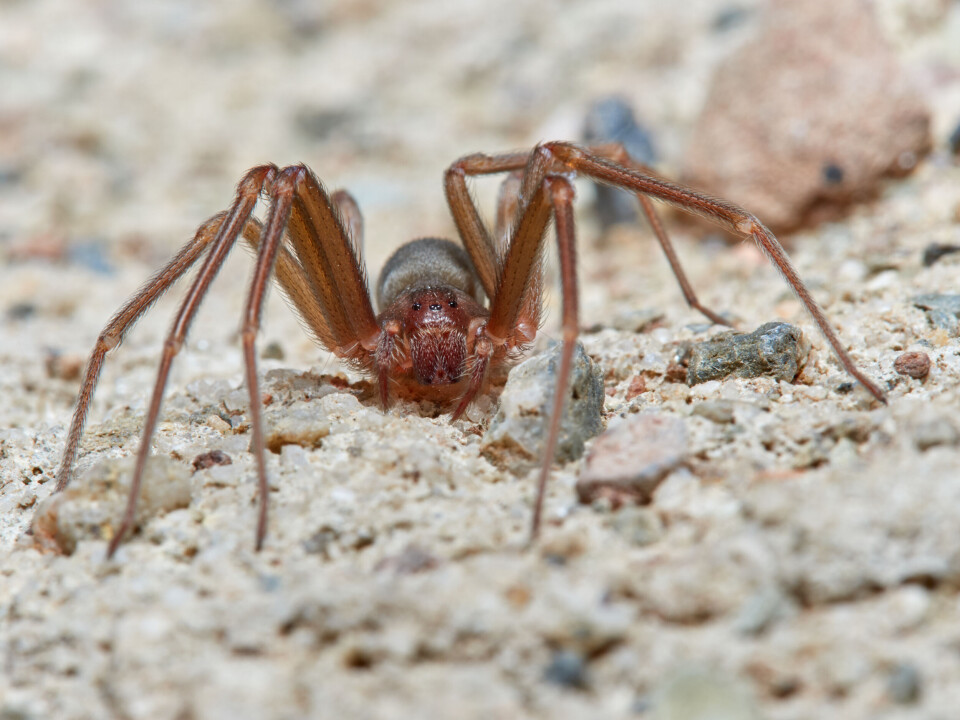1.5cm hole in leg: Teenager bitten by ‘violin’ spider in south of France
The spiders are not thought to be aggressive. We look at where they are in France and the possible complications of a bite
The Mediterranean recluse spider can cause harmful reactions but is not usually deadly
Macronatura.es / Shutterstock
A teenager was left with a 1.5 cm hole in his leg and necrosis in his foot after suffering a bite from a ‘violin’ spider in the south of France.
Corentin, 17, from Montredon-des-Corbières (near Narbonne, Aude) was coming home on his scooter from a beach rugby tournament on July 28 when the spider bit him.
He felt pain in his ankle, and by the time he came indoors, “he could no longer put his foot on the ground”, said his mother, Malika, to L'Indépendant. “We thought he had sprained it.”
However, Corentin’s condition soon worsened, suffering from headaches, fever, and loss of appetite.
He effectively stopped eating for five days due to loss of appetite.
His ankle began to swell and he was prescribed antibiotics. However his condition continued to worsen.
“‘On Tuesday…there was a hole [in his ankle],” his mother said. After further tests including a scan, an X-ray and blood tests, it was determined that Corentin had been bitten by a violin spider.
He underwent a 1.5-centimetre deep curettage surgery to remove the dead tissue, and recovered after two weeks.
Violin spiders increasingly present in France
‘Violin’ spiders are increasingly present on the Mediterranean coast of France - especially near Marseille (Bouches-du-Rhône), and are so-called because they have a ‘violin-shaped’ mark on their back. Its body is around 1 cm long, with legs 3-4 cm long, and it is usually a sandy brown colour.
They are also known as ‘recluse’ spiders in English.
Read also: ‘Violin’ spider said to have killed man in Italy: What risk in France?
Although their bite is not usually fatal unless it remains untreated for a long time, it can cause severe complications, especially if the person is young or has a fragile immune system. It can cause fatal anaphylactic shock in some people.
It tends to avoid the sand and sea, and prefers to hide under stones, bark and warm, dry, dark places. Corentin’s family believe that the spider had been hiding in his scooter.
It is also found across Europe - including Albania, Croatia, Crete, Greece, Portugal, Spain, and Italy - as well as Asia and North America. The Araneae Spiders of Europe website states that the spider is “spreading across Europe”, but should “not be considered as exotic or invasive, as it is indigenous to Europe”.
It is rare to suffer a bite as its teeth are not always strong enough to break through human skin. When it does bite, it can be difficult to diagnose or treat quickly. A sudden pain in one area of the body, for no apparent cause; followed by fever, headache, and loss of appetite, can be a sign of a bite.
“The only test to diagnose bites from this spider [is] the Elisa test [enzyme-linked immunosorbent assay, a common laboratory test to detect antibodies in the blood],” said spider expert Pierre Lora to TF1 Info.
Two men in Italy - one 52-year-old, and a 23-year-old - are so far reported to have died this year, as a result of complications from a violin spider bite, after another man died in the same country in June 2023.




























